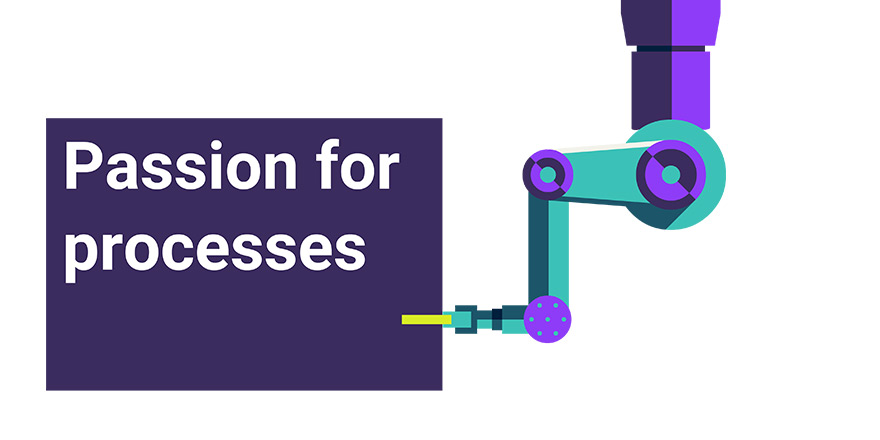Passion for Processes: Thought leaders Stuart Trott & Pieter Walraven
Join two ARIS user group presidents as they discuss their passion for business process transformation – from governance to modeling and mining.

Trends come and go, but there has been one constant over the years: Process excellence remains one of the most important goals in every company’s to-do list.
In the second episode of our Passion for Processes interview series, I am thrilled to be able to talk to two ARIS user group presidents at the same time:
Stuart Trott who is the Head of Business Process Methodology and Governance at Yara, a Norway-based, global supplier of fertilizer which uses ARIS in its daily operations. He is responsible for business process governance support, BPM training and methodology.
And Pieter Walraven who is a retired Quality Assurance Manager who worked for Friesland Campina, a Netherlands-based multinational dairy cooperative. Process management is the common thread of his career and, although retired, he remains passionate about developing new capabilities.
In January 2022, Stuart took over the reins of the ARIS International User Group from Pieter.
Q: Welcome, Stewart and Pieter. It’s my pleasure to have you here today. How did your process journeys begin?
Stuart: I was trained as a business analyst and part of the job was writing functional specifications – analysis of processes and the way people work. So, it was a natural progression from there into business process management. I was introduced to ARIS when I worked on a project at Nedbank in South Africa where we did activity-based costing using it.
Pieter: I began in chemical engineering at Heineken. There I worked to help improve processes and to make them more efficient and learned more about how the processes work. I got involved with ARIS as a tool to properly document processes and improve them, diving in through analysis and running simulations.
Q: What is the most crucial thing BPM can achieve?
Pieter: Sometimes certain activities do not add value to your company. They are inefficient or ineffective. That’s what you need to find out. That is what you have to document and to measure. Process mining is so extremely important because that shows you how the process is executed in real time by the people, by your staff. Then you can get insights and improve your processes.
Stuart: We found that, in the absence of good business process modelling and governance, large programs and transformation projects are bound for failure. This can cost an organization a lot of money if it’s not done properly. Using process mining, you can dive into the data from your transactional systems for deeper insights, and this helps you to find the costly aspects eliminates waste.
Q. If you had to sell process management to your board, what would you tell them in one or two sentences?
Pieter: Try to find some burning issues in your organization and a manager who’s responsible for them. He/she will be more willing to follow up, to listen, to take it up and be supportive because it also helps him/her to put out their little fire.
Stuart: We had a tough job selling this to the C-levels, but what we did was to run a small pilot project, with a focused ambition. We very quickly demonstrated that we could save the organization multimillions of dollars by optimizing or standardizing a process, a repeatable process. Then, of course, the word quickly spread.
Q. Let’s discuss sustainability, environmental and social protection in process management – we call it green BPM. How do you think it will develop in the future?
Stuart: As a fertilizer company, our mission statement is to feed the world and protect the planet – really lofty goals and ambitions, I know. For me green BPM is analyzing your processes with a view towards sustainability. It’s about making sure that your resources and inputs into your processes are used optimally and trying to eliminate waste wherever possible. We’ve always been using this lean type of approach, but it’s even more crucial now with the state of our planet and resources. So, yes, green BPM is a tool that’s going to help us to reach these objectives.
Pieter: In the beer industry and especially in the dairy industry at this moment, sustainability is very high on the agenda. It’s important to use your raw material not only in a very cost-effective way but also in an environmentally friendly way. So, BPM is one of the key things for the future as processes are linked to objectives and strategy. Green BPM or sustainability is a strategic point in the strategic objective.
If you would like to watch the full interview, please click below. And stay tuned for the next Passion for Processes blog.